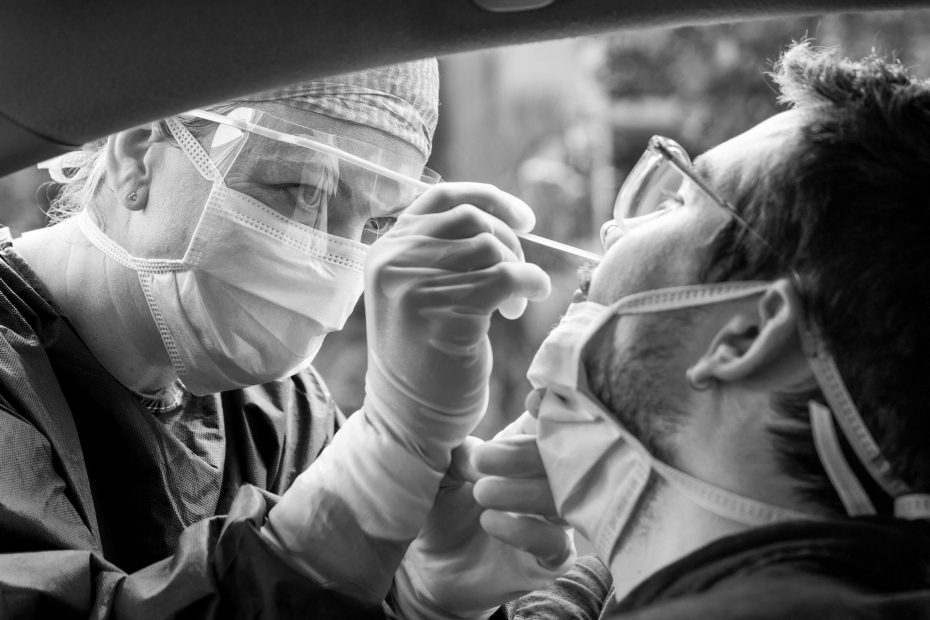5-MINUTE READ | PROTECTING YOUR BUSINESS
Let’s start with the hard truth: Your business likely does not have the right insurance coverage to protect against COVID-19 claims. Many insurance policies do not cover disease, and those that do often have exclusions for communicable diseases like coronaviruses. Understanding the nuances of your coverage is critical to knowing whether you’re covered or at risk. However, in-depth coverage reviews can be tricky. You’ve come to the right place, though — because Aldgate can do this for you, saving you time and giving you peace of mind.
If you don’t have a broker yet, here’s a cheat sheet to help you understand your disease coverage. Grab your policies, and let’s begin.
Property Policy
This is the coverage that pays for damages the business incurs. Generally, property policies are predicated on some direct physical loss of (or physical damage to) property at or near your business premises. In addition, property policies often pay for loss of business income.
Business Interruption/Business Income Coverage
Because it’s an airborne virus, COVID-19 doesn’t typically cause physical damages to premises. However, some policies may cover your loss of business income as a result of the virus. This requires deeper analysis, because some coverages have sublimits (i.e., lower dollar amounts) that may apply to your loss. If your business income coverage is an add-on, it likely has a sublimit.
Imminent Peril Coverage
This is considered an extra expense and may be a clause in your policy, or it may be broken out as an endorsement to your policy. This will pay for expenses that you incur when you take actions to mitigate or avoid the occurrence of a claim in the first place. Let’s look at an example. Say you own a grocery store and one of your employees tests positive for COVID-19. Your imminent peril clause may cover the costs of closing the store for a day to thoroughly clean and disinfect it. In this case, you have mitigated potential losses that the business might incur if it was forced to shut down for an extended period due to an outbreak. You have also avoided filing a property claim under the business interruption portion of your policy. If your policy includes this coverage, it’s always prudent to take immediate action to mitigate potential additional losses that might arise if no action is taken.
Civil Authority Coverage
This coverage section can pay for losses arising from your inability to access your premises because a civil/governmental authority has prohibited it with an order. Imagine that a gas line leak on your street causes the authorities to block access to your offices for an extended period. Civil authority coverage would cover this. In the case of COVID-19, civil authority coverage may cover losses due to government mandated stay-at-home orders that prohibit you from operating your business. A helpful tip: When reviewing your civil authority coverage, look for language regarding restriction of “ingress” to, or “egress” from, a covered property.
Workers’ Compensation Insurance Policy
This is the primary insurance coverage for anything involving your employees. Workers’ compensation insurance is heavily dictated by the laws of each state, and we are not aware of any state that permits an insurance carrier from excluding COVID-19 claims. However, this is subject to change due to quickly evolving legislation. Depending on your business and how the state categorizes your business activities in relation to its interaction with the public, the onus is usually on an employee to prove they caught COVID-19 on the job.
General Liability Insurance Policy
Many people think their general liability coverage will protect them from COVID-19 claims. This makes sense, as general liability (GL) coverage protects you against claims brought by third parties for bodily injury and property damage. However, there are many exclusions. For instance, most GL policies contain pollution exclusions — and many are worded so that viruses and bacteria are lumped in as a type of pollution. This means that your GL policy may not provide you with protection against COVID-19 claims.
Final Takeaway
It’s important to remember that, regardless of insurance, businesses should always use the best safety practices. Following best practices saves businesses time, effort and money. Even so, COVID-19 has shown that best practices aren’t always enough. Our brokers at Aldgate are here to help you understand and build a plan to protect your business. There are solutions and coverages available to protect your business from COVID-19 and other pandemic claims. Contact us today and let us see what we can do for you.
